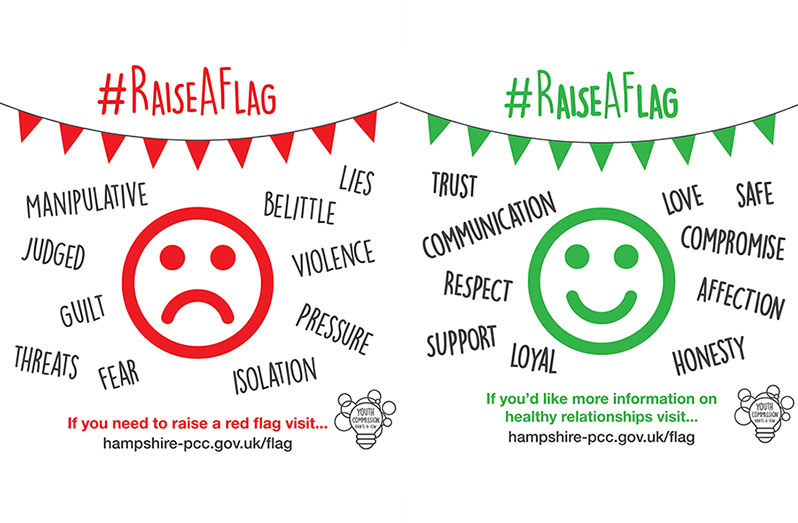A FEW months ago, my Facebook timeline was filled with the red flag emojis. I think at the time, many people didn’t even understand what a red flag was or in what context to use such a phrase. It was used to make memes of people, places and things that ought to be avoided because they’re “red flags.” The internet labelled almost everything as a “red flag.” Habits such as never seeing a popular Netflix show to people from Berbice were listed as red flags. I’m sure you’ve seen the memes. It was something to chuckle at back then, but as I continue to write and open up conversations on abuse—I can’t help but acknowledge the importance of understanding “red flags” in relationships and why you should never ignore them.
Generally, red flags are used as a stop sign. You have to stop at a red light, or even when the farmer waves a red flag while crossing his cattle on the public road. In the context of relationships and abuse, red flags are essentially “warning signs.” They may directly indicate that a person is mentally or emotionally manipulative and toxic to be in a relationship with. You may end up in emotional conflicts or abuse by proceeding into a relationship with someone who has certain ignored red flags. In essence, red flags in individuals can even pinpoint an abusive personality, narcissism, an aggressor or an oppressor.
Given all of this, sometimes, we intentionally ignore red flags. Red flags are seen as a challenge sometimes rather than a warning sign. Sometimes, we set out to “change” that person with behavioural warning signs, or we hope that they change some time along the way. This is usually a recipe for disaster. Sometimes, red flags aren’t even analysed and understood until the relationship has ended. Some would describe this as “not being able to see beyond your nose.” In an instance like this, the abuser would manipulate your perception of reality. Don’t ever let them convince you that the red flags you see aren’t real.
 It’s also important to know the difference between yellow flags and red flags. Yellow flags are less slightly severe signs. These are usually subjective in nature and can be tolerable, based on your personal boundaries, values or opinions. Yellow flags aren’t necessarily harmful to a relationship; they may be certain habits or behaviours that can cause minor conflicts or friction in a relationship. Unlike yellow flags, red flags are more life-threatening and can put you in direct danger. Substance abuse, anger issues, co-dependency, gaslighting, inability to solve conflicts, lack of communication skills and being overly controlling are examples of red flags in a relationship.
It’s also important to know the difference between yellow flags and red flags. Yellow flags are less slightly severe signs. These are usually subjective in nature and can be tolerable, based on your personal boundaries, values or opinions. Yellow flags aren’t necessarily harmful to a relationship; they may be certain habits or behaviours that can cause minor conflicts or friction in a relationship. Unlike yellow flags, red flags are more life-threatening and can put you in direct danger. Substance abuse, anger issues, co-dependency, gaslighting, inability to solve conflicts, lack of communication skills and being overly controlling are examples of red flags in a relationship.
When confronted with red flags, my best advice is to be honest with yourself and set personal boundaries with what you can and cannot tolerate in a partner. By setting personal boundaries, you’ll be able to define the type of relationship and partner you’d like to be with. As humans, we yearn for connections and relationships. We have evolved to be social beings. While a connection is important, not all connections and relationships are healthy for us. As such, boundaries can help to navigate the type of relationships and partners we’d like to have. When presented with a red flag in someone, we might be interested in, it’s important to take a step back to reflect on the structure and potential of the relationship. Can the relationship be emotionally, mentally and physically healthy with the shown warning signs? If your answer is no, then it makes no sense to proceed into such a relationship.
Red flags are usually very subtle in the beginning, but an abuser will never show his true colours all at once, but their subtle, abusive traits and behaviours will eventually grow over time. Don’t wait until time tells your tale. Ignoring the red flags because you want to see the good in people will cost you later.




.png)









